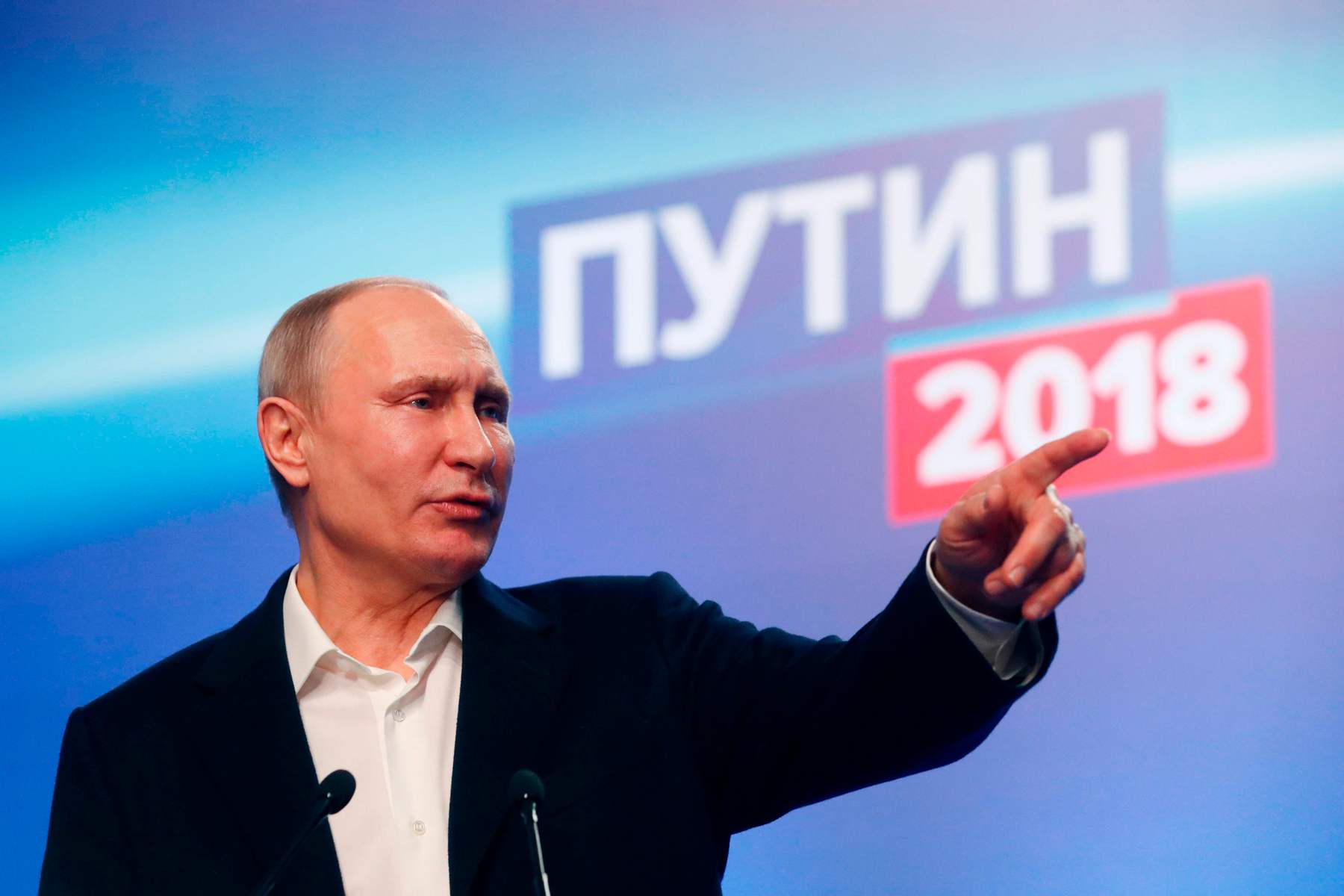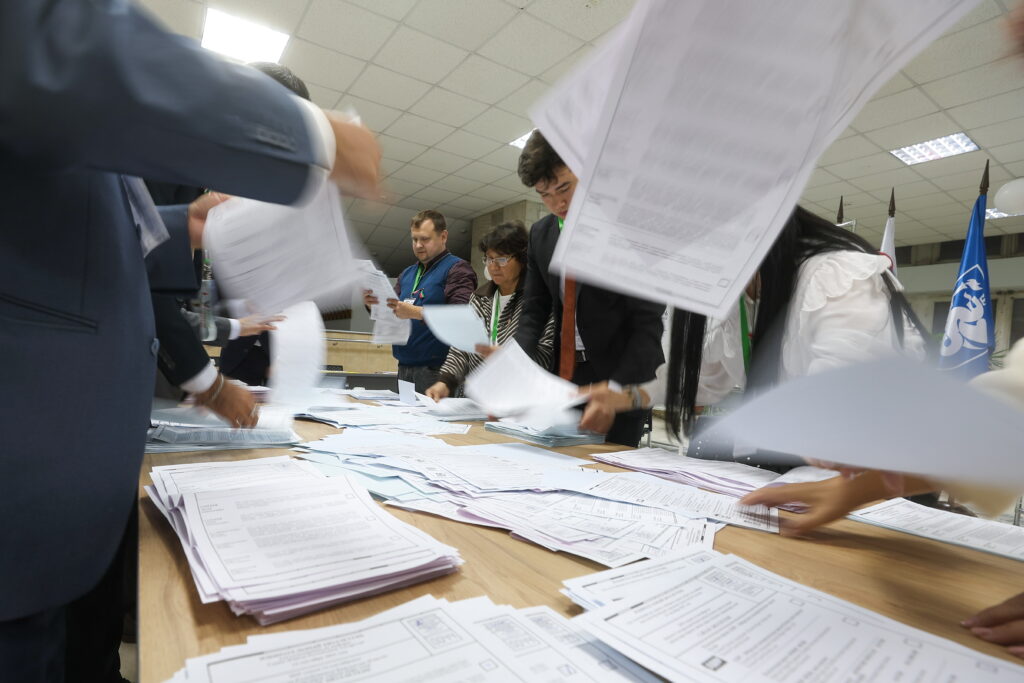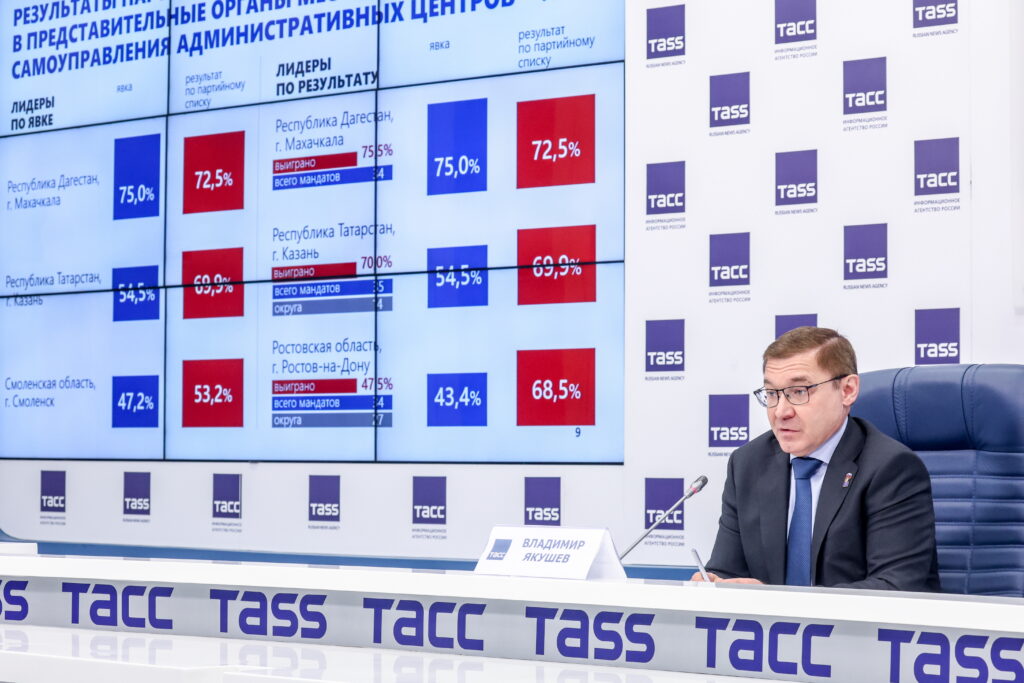Russian elections obviously do not reflect the will of the people, given their massive administrative control and widespread falsifications. Even so, the level of electoral support for the Russian president and the United Russia Party varies considerably from region to region.
Researchers of Russian electoral processes have long ago noted that many (but far from all) republics with a titular ethnic minority deliver considerably more votes for the government than typical Russian regions. This is particularly true in the North Caucasus and the Turkic republics in the Lower Volga.
The policy of centralization under Vladimir Putin has hit most ethnic minority preferences in these republics. So why is it, after the loss of political autonomy and their basic preferences, do ‘ethnic republics’ continue to exceed other regions in their level of political loyalty to the center?
Some scholars and experts point out the unique culture and social structure of non-Russian ethnic groups. According to this explanation, ethnic minorities in Russia have tighter social networks with more intense communication within the group. Many of these communications follow a vertical hierarchy, with regular group members oriented toward an authority that can enforce a united opinion and politically mobilize the community when necessary. We decided to factcheck these explanations with both quantitative and qualitative data. Our study centers on European Social Survey polls held in Russia since 2006, which include details about a respondent’s ethnicity, place of residence, and the political party that they voted for in the 2011 and 2016 parliamentary elections. Our analysis led us to conclude that ethnicity does not influence one’s political choice and that ethnic minority voters do not vote for the government any more than ethnic Russian (russkiye) voters. Place of residence actually matters more: rural voters support the government and participate in elections more actively than urban residents. Furthermore, this trend is true for minority and ethnic Russian voters alike.
Survey data did not answer our question about the reasons for higher political loyalty among rural residents than urban. Is this because rural elections are more easily controlled and falsified than in cities? Or perhaps in villages where the majority of residents are non-Russian, their «tighter social networks» compel political loyalty at the voting booth? To answer these questions, we conducted our own poll using focus groups in three rural villages in Bashkortostan and Tatarstan.
Are titular ethnic groups in rural areas really more active in elections?
Polling allows us to answer this question affirmatively. However, it is more important for us to understand why this happens. When explaining their reasons, our respondents divided into two mostly equal camps. The first one explained their electoral participation with their culture, upbringing, and personal civic responsibility. They noted that voting sets a good example for their children. The second camp answered like this: «Everyone in the village knows and sees each other. If you do not show up to the polls, you can get a phone call.» Respondents in all three villages confirmed that by evening, members of the electoral commission start calling voters who have not yet cast their ballot. One of our discussants in Bashkortostan provided an example: «I got a call once that said ‘until you come to the polls, we can’t go home.’ And so I went, because I felt uncomfortable making an inconvenience for my village neighbors.»
One important consideration is that local authorities rely on pleas and soft persuasion rather than punishment. ‘Voter intimidation’ is not exactly the case here. The reality more likely lies in truly close interpersonal ties among villagers and the close proximity between voters and the local administration. According to our respondents, members of electoral commissions are not rude or threatening. When they call and ask voters to come to the polls, they are probably worried and inquire if the person is sick. Do they need someone to come to their home so that they can cast their vote? In other words, tactics to increase voter turnout more often include moral politeness than rudeness and threats.
Our focus group members in Bashkortostan said that rural residents, compared to their counterparts in cities, have a «different mentality.» Interestingly, one member said that when she lived in a city for five years, she did not participate in elections, but after she returned to her village, she resumed voting. In our view, this statement shows that rational choice, rather than «mentality,» guides rural voters: in the absence of factors like control or pressure, they can easily change their electoral behavior. This casts serious doubt on the notion of a patriarchal culture enabling political pressure and control.
Do titular ethnic groups in rural areas really vote by following authoritarian leaders?
We can answer this question negatively. Overall, respondents believe that everyone makes their choice independently and that there are no authorities who can convince the majority to vote one way or another. Group members in Bashkortostan noted that they try to elect those who can be most helpful for their village. This is why local officials’ pleas to support candidates with status and resources can be influential. The leadership’s opinion, such as that of the municipality head, especially carries weight for those relying on government paychecks. According to one respondent, this is how villagers voted twice for the boss of a large roadworks company, hoping that he would pave a road connecting the village with the municipality’s center. In this sense, it is not important how, but where a candidate works. Given that almost all members of United Russia are in charge of an enterprise, people vote for them in the hope that they will provide material support for the village. Likewise, they avoid voting for the opposition in fear that the municipal head will punish the village by cutting financial support.
Are rural titular ethnicities really solid backers of the incumbent government?
The short answer is no. The majority of our discussants admitted that there is a real gap between the people’s choice and the official electoral result. They believe that only public sector workers have to vote as they are told from above, and government officials do not have enough authority to persuade or force regular people to vote a certain way. Accordingly, local governments reach the «right» election results exclusively through falsifications. Many discussants are sure that in truly free elections, the Communist Party (CPRF) would rout United Russia in rural areas. Overall, the majority believes that people vote for all kinds of different parties and candidates: «Everyone votes differently. Only the official results say that we all voted for the same party.»
Does this mean that ethnicity plays no role in elections?
This is not exactly true. Polling conclusively shows that titular ethnic groups see true importance in a regional leader’s ethnicity: they are very hostile to the possibility of this leader being from a non-titular group. While researching the importance of ethnicity in political choice, we discovered that our respondents see the regional leader’s ethnicity as a symbol of preservation for their culture and special ethnic status. This lifts their hope that a regional leader who is «one of our own» can ease pressure from the federal center and protect their unique culture. Our respondents condemned the abolition of compulsory minority language classes in «ethnic republic» schools. This particular decision reinforced their opinion that the republic’s leader must be exclusively drawn from the republic’s titular ethnic group. In Bashkortostan, discussants dismissed the possibility of supporting an ethnic Russian candidate for head of the republic, even if the candidate could increase living standards for residents. The majority said that despite mounting disapproval of the incumbent head of Bashkortostan, Radiy Khabirov, they will support him in the next election if he will be the only Bashkir on the ballot.
Respondents in Tatarstan express even more political loyalty to the incumbent President Rustam Minnikhanov and support his policies, despite him yielding to Moscow on several issues. As one of our discussants explained: «If he spoke too fiercely, he could get removed and replaced with someone more loyal. Then we would be even worse off. This is why I support his balancing act. Let him be in charge; after all, we see what’s going on in other republics.»
As it turns out, centralization and its tendency to reduce ethnic minority groups’ political and cultural autonomy in Russia strengthens their motivation to support politicians who represent their ethnic group. Therefore, these voters see republic heads who match their region’s titular ethnic group as defenders of their ethno-cultural preferences. Combined with fear of angering Moscow and losing even more autonomy, this trend leads to minorities being even more receptive to their regional leaders’ main message: support the Russian president and the United Russia Party.
At first glance, this seems paradoxical: the more Moscow ups the pressure and tightens the screws on ethnic groups, the more these groups support the Kremlin. However, in this case we are dealing with a fairly widespread effect, described by political scientists as the tragic brilliance of authoritarianism. In contrast to democracies where voters can punish the government for an economic crisis by voting for the opposition, authoritarian regimes can use crises for their own benefit. A crisis is precisely the condition that can stimulate electoral support for incumbent authoritarian leaders. Here is the logic: in a period of economic growth, every region enjoys subsidies from the center (loyal regions more so than less-loyal ones). But during a period of limited resources and tightened centralization, it becomes clear that less-loyal regions can see their economic lifeline reduced, if not severed completely. This results in competition for subsidies between regions, one in which political loyalty becomes a key advantage. A similar logic plays out with ethnic minorities in Russia under the pressures of crisis and centralization, during which they are less interested in expanding their political and cultural autonomy than preserving the status quo. Under the threat of losing all their remaining ethnic preferences, they are inclined to not only unite behind «their own» regional head, but also adhere to his calls to vote for the Kremlin’s preferred federal players and not risk making the situation even worse. This is the essence of authoritarian tragic brilliance. Tragic, because ethnic minorities are forced to give up their ethno-cultural rights; brilliant, because these tightening screws of authoritarianism paradoxically reinforce the ethnic minorities’ loyalty. Despite worsening conditions, the government can deliver truly ‘brilliant’ electoral results precisely in Russia’s ‘ethnic republics.’










